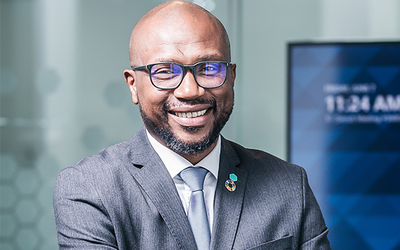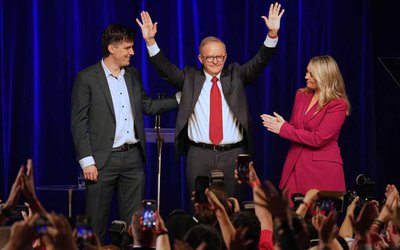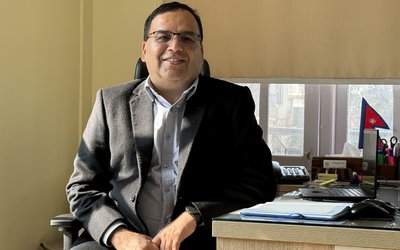More on Interview





At a time when Nepal’s transition to peace is in the final stage, the Third Human Rights National Magna Meet-2011 is going to be held on December 9-11. President of Media Initiative for Rights, Equality and Social Transformation (MIREST-Nepal), a right based organization, SURESH ACHARYA, a co-coordinator of Human Rights National Magna Meet 2011, spoke on various issues regarding the meet to NEW SPOTLIGHT. Excerpts:
What is the difference between the last two Human Rights National Magna Meets and the present one?
There are not many major differences in the last two Human Rights National Magna Meets and the present one. The Meet is a new initiative in enhancing overall human rights situation in the country. This time, the number of participants will be different from the earlier ones. Various organizations working in different sectors will take part now. The Magna is not only confined to the old organizations dedicated to human rights but other organizations are also taking part in the Magna.
What is the goal of Magna?
The overall goal of the Magna meet is to create a critical consciousness and concern of human rights among general people, political parties and different groups and thereby build a conducive environment for the protection and promotion of human rights in holistic and integrated manner by joining hands among various like-minded organizations, individuals and institutions previously working in isolation. The goal is meant to provide direction for synergistic expansion and consolidation of human rights in future.
What kinds of things will those organizations learn?
The Magna Meet will be a joint platform for all concerned stakeholders to share their lessons, resources and works with common people on various aspects of the human rights work. The meets so far have turned out to be historical milestones in the human rights work and this will be established as a tradition for the upcoming years also.
How many people will attend the event?
We are expecting more than 50,000 people to attend the program. They will take part in seminars and other such programs. We are planning to distribute 30,000 copies of leaflets, booklets and handouts.
How will the Magna contribute to improve the human rights situation in Nepal?
One of the important parts of this Magna is to help common people and other various stakeholders know about the present scenario of human rights, conflict transformation and peace process among the common people and a consensus among the stakeholders on issue of the need to pressurize the Constituent Assembly members and the senior party leaders to draft the new constitution incorporating the ideals of human rights, democracy and peace.
How do you see the state of human rights in Nepal?
There may be disputes among various groups regarding the state of human rights in Nepal. Of course, there is a certain improvement in the human rights situation in Nepal but we have yet to improve it at par with the international standard. Nepal needs to express full commitment to human rights and protect the rights of the people at all level including at the poor.
Who will participate?
Although this initiative was taken by non-governmental sector, there is going to be participation from the public sector also. For instance, constitutional bodies likes National Human Rights Commission is directly collaborating with us. All parties will join the Magna meet including the NGOs, organization protecting third gender’s rights.
What is the nature of participation?
The nature of participation will be diverse and extensive. The Magna will be a joint platform for all concerned stakeholders to share their lessons, resources and works. There will be participation of the media organizations and right based organizations like Dalit, women, Janjati, professional organizations like doctors, lawyers, Third Gender and Adibashi. Human rights are universal rights and they are equally important for all human begins. We are expecting that there will be more than six dozen Nepali and a half dozen of international organizations taking part. We are very proud that National Human Rights Commission is very supportive to this Magna.
How is human rights issue evolving?
International support for a core group of human rights, mainly civil and political, has been enshrined for more than half a century in the Universal Declaration of Human Rights, ratified by the United Nations in the aftermath of the second world war and the Holocaust. The time has changed a lot. There is the need to recognize economic and social rights. Their philosophical grounding is often questioned. Designating a good as a universal human right means that reasonable people believe that under no jurisdiction, and under no circumstances, may that good be justly denied to anybody.
What do you suggest?
The widespread misconceptions show that the public need better information and advice about their rights and how to bring enforcement action if their rights are breached in accessing public services. The media, whose role is closely bound up with public opinion and misinformation, require support to report human rights cases fairly and accurately. Everybody needs human rights, be they villagers or urban people.
What is the role of media?
The role of the media is very important to carry the message of human rights. This is the reason we have been stressing media’s active involvement in the Magna. We are more focused on the mass media. This is a common platform for human rights organization working in Nepal. Various human rights organizations will get opportunity to share their experiences with others. Other important thing is making the declaration from a common platform. A Magna Meet Declaration 2011 developed in consensus with the participating organizations and individuals for collective initiative for strengthening human rights, sustainable peace and development will be there.
What should be the thrust?
When we talk about human rights issue in the context of Nepal, the goal should be to consolidate national interest and social cohesion. Working for long in a right based organization like MIREST, the time has come to widen the scope of human rights to reach all the people from urban to remote parts of the country.







